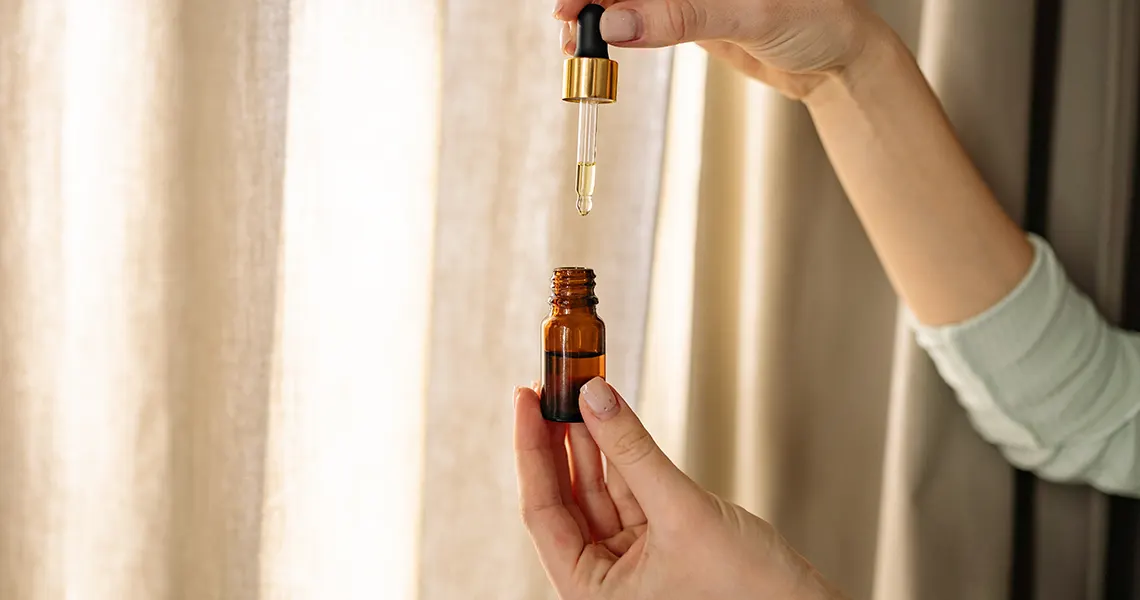
What is CBD oil?
You may have noticed the hype surrounding CBD oil growing. All over, people are speaking about and debating the effects of the plant-based product.
For decades, it was banned in almost every country in the world. In recent times, however, several places have re-legalised the substance. As restrictions on research are lifted, more information is coming to light regarding CBD oil benefits
The market surrounding plant-based medicines is expanding quickly, and sometimes the information being reported in the media can be confusing and difficult to follow.
CBD is the abbreviation for cannabidiol. It sits alongside THC as one of the two major active ingredients found in plant-based treatment options.
It is non-psychoactive and therefore non-intoxicating. This means it won’t get you high, and it won’t affect your ability to make reasonable and sound decisions.
CBD oil is the most popular cannabidiol-based product on the market. It is a mixture of CBD extract and a carrier oil stored in a dripper bottle.
The reason for its sudden popularity is its association with providing relief for symptoms associated with chronic conditions. As an alternative treatment option, it appeals to those who don’t react well to conventional medicine.
Information surrounding CBD can be a little overwhelming and confusing, so taking some time to learn about the substance is important.
Tips for using CBD oil

Using CBD oil is a pretty simple task. Most people will not have a problem self-administering the plant-based treatment.
As far as how to take CBD oil goes, experts believe it should be consumed sublingually for best results. Droplets are placed underneath the tongue and left to sit for 30-60 seconds before swallowing.
The effects of cannabidiol will usually kick in around 15 minutes after consuming the substance sublingually. It can last for several hours, depending on the concentration.
If this way doesn’t suit you, CBD oil can also be mixed with a beverage of your choice such as tea, coffee or water. Additionally, it can be infused with foods and snacks as a method of consumption.
The taste of CBD oil is usually earthy, but some products may be combined with flavouring and/or other ingredients. Depending on what was added, the taste may differ.
The types of CBD oil

As the plant-based treatment market expands, product selection and accessibility keep growing.
- Full-spectrum: Full-spectrum CBD oil uses the full range of available compounds and terpenes in the plant-based treatment.
- Broad-spectrum: These products use most of the compounds and terpenes but go through a rigorous process to remove all traces of THC.
- Isolate: These products contain only cannabidiol and none of the other compounds or terpenes found in plant-based treatments.
It is also important to note the difference between hemp oil vs CBD oil. The former contains little to no cannabidiol and is made from the seeds of the hemp plant while the latter is made from the compounds, leaves, and terpenes.
If you’ve asked yourself “does CBD oil show in a drug test in Australia?” – it depends on the product type. A full-spectrum product can lead to a positive drug test as it contains trace amounts of THC.
The medical benefits of CBD oil

Research about the potential benefits of cannabidiol oil is growing, and the results are driving more clinical trials. Experts, however, have emphasised that the existing evidence should not be seen as conclusive.
We’re going to need far more clinical trials and controlled studies before we make any definitive statements regarding the medical conditions CBD is used to treat.
Here are five potential medical benefits of CBD oil that researchers are currently exploring:
May reduce anxiety
A 2019 study tested the effects of the plant-based medicine on subjects who had to perform a simulated public speaking test. The results showed that people who struggle with prescription medication may find that using CBD oil for anxiety works for them.
May help with pain
A 2020 paper found that cannabidiol presents an opportunity for the treatment of chronic pain in cases where mainstream medication is insufficient or not possible.
May have neuroprotective properties
Experts believe that the way CBD interacts with the endocannabinoid system and brain-signalling systems may be beneficial for treating neurological disorders.
May be good for heart health
Research suggests that CBD may be beneficial for heart health. One such randomised crossover study found that a single dose of cannabidiol decreased blood pressure in healthy volunteers.
May improve sleep
Cannabidiol is often prescribed as a treatment for sleeplessness. A research paper from 2022 concluded that it may be beneficial in treating insomnia, but that more clinical research is needed.
Is CBD oil safe?

Most experts believe that CBD is safe. This means that adults should have no issue when it comes to consuming the product. There is also not much risk of dependence or addiction when it comes to cannabidiol, as the compound is entirely non-psychoactive.
Despite this, there are a few potential CBD oil side effects that patients should consider, such as:
- Drowsiness: There are rare cases where large doses of cannabidiol may cause feelings of sedation, drowsiness, or vertigo in some patients.
- Dry mouth: CBD may occasionally interrupt the body’s ability to produce saliva, causing a dry feeling in and around the mouth.
- Stomach cramps: Cannabidiol may cause gastrointestinal problems such as cramps or diarrhoea in some patients.
- Liver damage: Some researchers are concerned about the plant-based compound’s impact on the liver and have warned users with existing liver conditions to avoid the substance.
How to buy CBD oil

The medical potential for cannabidiol may have you excited to go out and purchase some, but it’s not that easy. If you were hoping to buy CBD online, you may be disappointed.
In Australia, only patients with a valid medical prescription can access the plant-based treatment. This means that before purchasing CBD, you’ll need to consult with a qualified medical practitioner.
There is no set list of conditions or patient types that qualify for plant-based medicines, but CBD should not be seen as a first-line treatment. This means that patients must have first tried mainstream medicine and that medicine must be failing to provide the necessary relief.
If there is evidence to suggest that cannabidiol could provide relief for the condition being treated, and the doctor believes it clinically appropriate to do so, a script will be written. As most products are unregistered, doctors will first have to obtain approval from the Therapeutic Goods Administration to legally prescribe the treatment.
Qualified medical practitioners can apply for this approval via the Special Access Scheme (SAS) or Authorised Prescribers Scheme (AP).
Purchasing CBD from a black-market source is unlawful and may have legal consequences. There are also significant safety risks attached to unauthorised CBD products as there is no way of knowing what the actual ingredients are.
Summary
A new chapter in the history of CBD has begun, and its popularity is growing at a rapid rate. As plant-based products such as CBD oil keep gaining traction, understanding the ins and outs of the alternative medicine becomes increasingly important.
CBD oil in Australia is used to treat symptoms associated with chronic conditions. The research on the efficacy of the treatment is still in its early phases, but promising signs are driving more clinical trials and controlled studies.
The oil can come in full-spectrum, broad-spectrum, and isolate products. If you’re looking to avoid a positive drug test, it may be best to stay away from full-spectrum products as they contain trace amounts of THC.
Only patients with valid medical prescriptions can access CBD oil in Australia. As such, it’s crucial to consult with a doctor to determine if cannabidiol is suitable for you.
As time goes on, research will keep growing, and we will soon have more conclusive answers on the safety, efficacy, and risks of using CBD oil as a treatment.
